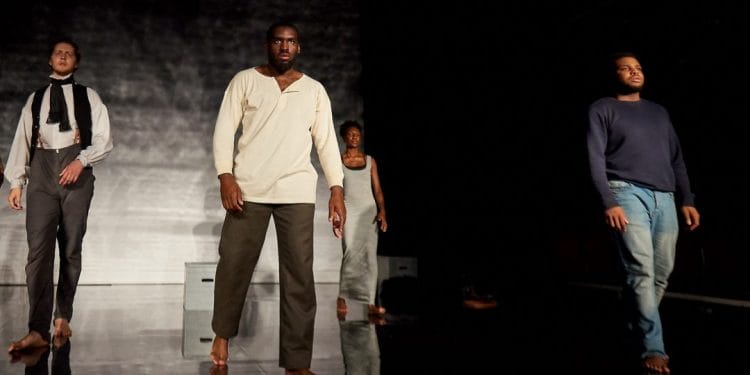Henry Bays is the Executive Producer of Strictly Arts Theatre Company, which presented Freeman at the Edinburgh Fringe this year. In this guest article, Henry explains how the Pleasance have helped the company get their work seen.
London audiences now have the chance to catch the critically acclaimed show as part of the Caledonian Express Season at The Pleasance, 16th – 21st October 2018.
We were lucky enough to be the recipients of the Charlie Hartill Special Reserve Fund that is run by the Pleasance. Without this fund we wouldn’t have made it to Edinburgh, as the cast was of Freeman is too big and therefore the costs too high.
With the fund and the backing of the Pleasance, we were able to make the most of our opportunities.
Freeman is a difficult show to explain and pitch to audiences and venues but, as we have found over the last two years of developing the piece, once people see it they understand the importance and quality of the show. We were fortunate to build up momentum very quickly with some amazing audience feedback on social media and some great reviews. This led to us selling out the run and having lots of requests from the industry for tickets and meetings.
The Fringe enabled us to get our work in front of reviewers, programmers and audience members from around the world, which simply wouldn’t have been possible anywhere else. We have since been contacted by venues in Hong Kong, Chicago and around the UK as well as various charities and arts organisations looking to work with us in the future.
All aspects of our industry are constantly under heavy financial pressures, so it is understandable, albeit frustrating, when a small unproven company struggles to get noticed. However, as a Midlands based Black Led company, we have been fortunate to be supported early on by the Belgrade Theatre in Coventry and now by the Pleasance (As well as by fantastic audiences who have been very vocal in their support, so a big thank you to them too!).
Their advice, support and standing in the industry have been invaluable to us and have enabled us to continue our quest to make important theatre that tells the stories of people not often heard on our stages.

















